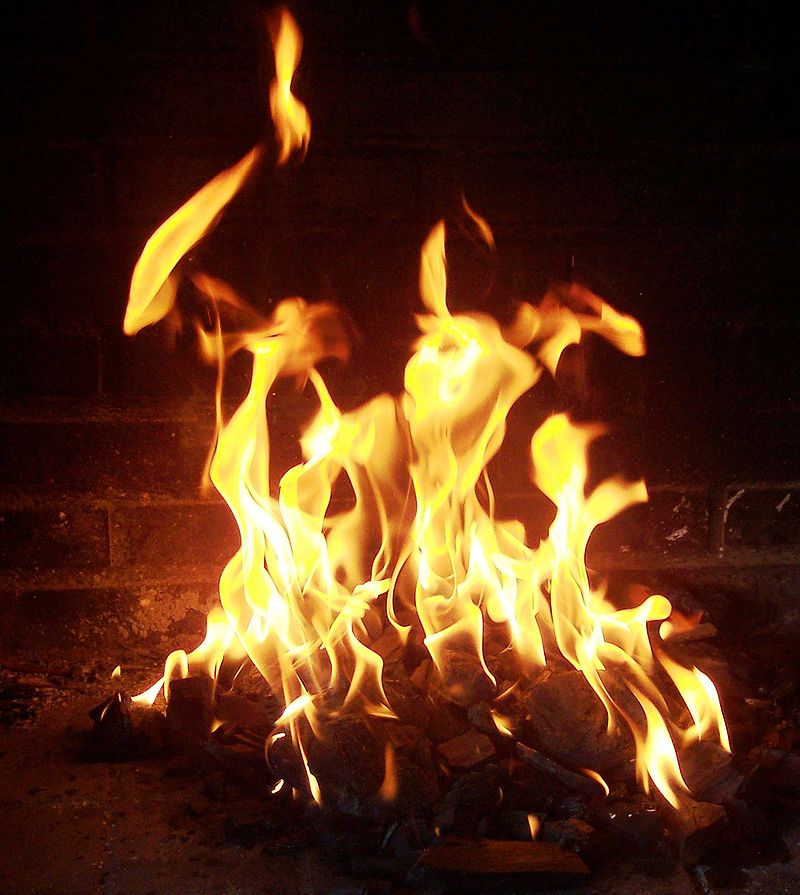Note: This article has been excerpted from a larger work in the public domain and shared here due to its historical value. It may contain outdated ideas and language that do not reflect TOTA’s opinions and beliefs.
From Myths of Babylon and Assyria by Donald Alexander MacKenzie.
In addition to water and atmospheric deities, Babylonia had also its fire gods, Girru, Gish Bar, Gibil, and Nusku. Their origin is obscure. It is doubtful if their worshippers, like those of the Indian Agni, believed that fire, the "vital spark,” was the principle of life which was manifested by bodily heat. The Aryan fire worshippers cremated their dead so that the spirits might be transferred by fire to Paradise. This practice, however, did not obtain among the fire worshippers of Persia nor, as was once believed, in Sumer or Akkad either.
Fire was, however, used in Babylonia for magical purposes. It destroyed demons, and put to flight the spirits of disease. Possibly the fire-purification ceremonies resembled those which were practised by the Canaanites, and are referred to in the Bible. Ahaz made his son to pass through the fire, according to the abominations of the heathen. Ezekiel declared that "when ye offer your gifts, when ye make your sons to pass through the fire, ye pollute yourselves with all your idols". In Leviticus it is laid down: : “Thou shalt not let any of thy seed pass through the fire to Moloch”.
It may be that in Babylonia the fire-cleansing ceremony resembled that which obtained at Beltane (May Day) in Scotland, Germany, and other countries. Human sacrifices might also have been offered up as burnt offerings. Abraham, who came from the Sumerian city of Ur, was prepared to sacrifice Isaac, Sarah's first-born. The fire gods of Babylonia never achieved the ascendancy of the Indian Agni; they appear to have resembled him mainly in so far as he was connected with the sun. Nusku, like Agni, was also the messenger of the gods.
When Merodach of Babylon was exalted as chief god of the pantheon his messages were carried to Ea by Nusku. He may have therefore symbolized the sun rays, for Merodach had solar attributes. It is possible that the belief obtained among even the water worshippers of Eridu that the sun and moon, which rose from the primordial deep, had their origin in the everlasting fire in Ea's domain at the bottom of the sea. In the Indian god Varutia's ocean home an "Asura fire" (demon fire) burned constantly; it was "bound and confined", but could not be extinguished. Fed by water, this fire, it was believed, would burst forth at the last day and consume the universe. A similar belief can be traced in Teutonic mythology.
The Babylonian incantation cult appealed to many gods, but "the most important share in the rites" says Jastrow, "are taken by fire and water suggesting, therefore, that the god of water—more particularly Ea—and the god of fire are the chief deities on which the ritual itself hinges". In some temples there was a bit rimki, a "house of washing", and a bit nuri, a “house of light ".
It is possible, of course, that fire was regarded as the vital principle by some city cults, which were influenced by imported ideas. If so, the belief never became prevalent. The most enduring influence in Babylonian religion was the early Sumerian; and as Sumerian modes of thought were the outcome of habits of life necessitated by the character of the country, they were bound, sooner or later, to leave a deep impress on the minds of foreign peoples who settled in the Garden of Western Asia. It is not surprising, therefore, to find that imported deities assumed Babylonian characteristics, and were identified or associated with Babylonian gods in the later imperial pantheon.
MacKenzie, Donald Alexander. Myths of Babylon and Assyria. The Gresham Publishing Company Ltd, 1915.
About TOTA
TOTA.world provides cultural information and sharing across the world to help you explore your Family’s Cultural History and create deep connections with the lives and cultures of your ancestors.


